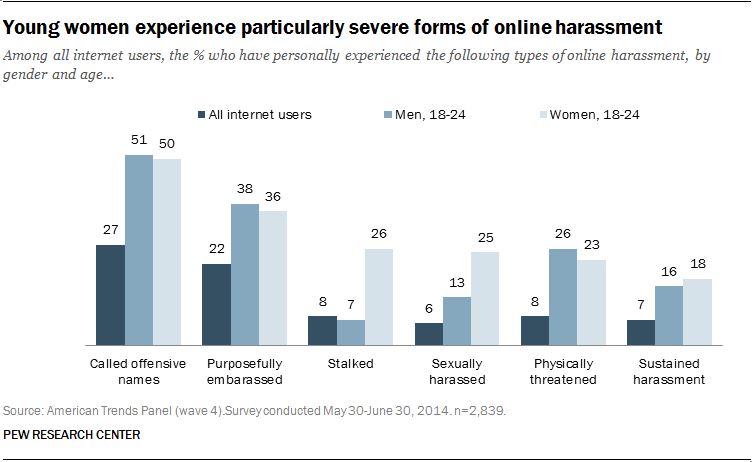Inge Graef, an expert on the intersection between personal data and competition law on online media platforms from KU Leuven, looks at the Facebook/WhatsApp acquisition and argues that the European Commission should have examined the impact data concentration can have on attracting and retaining users and privacy as a means of competition between competing services.
Facebook’s acquisition of WhatsApp raises two issues, both relatively new to competition policy. First is the impact of combining the two parties’ data sets on the level of competition in a market. Second is the role of privacy in competition cases. According to the press release outlining its approval of the Facebook/WhatsApp acquisition (the full decision is not yet published), the European Commission took into consideration whether potential data concentration issues arising from the transaction could hamper competition in the market for online advertising services. However, the Commission does not seem to have analysed the possible effects of combining the data of the two parties on the user side of the market.
With regard to the role of privacy as a competition concern, the Commission explicitly states that the assessment of privacy issues does not fall within its competence as a competition authority. Although purely privacy-related considerations indeed go beyond the Commission’s scope of review in competition cases, privacy may become a parameter for competition, which could bring the issue into the remit of competition enforcement in the future.
Potential data concentration issues in online social networking
In addition to looking at the markets for consumer communications and online advertising services that had been examined by the Commission in earlier decisions, such as Microsoft/Skype (consumer communications services), Google/DoubleClick and Microsoft/Yahoo! (online advertising services), the Facebook/WhatsApp acquisition required the Commission to analyse the market for social networking services for the first time. While leaving the precise boundaries of the latter market open, the Commission concluded that competition for social networking services is unlikely to be negatively affected by the acquisition. With regard to a potential integration between WhatsApp and Facebook, the Commission stated that even though Facebook’s position in social networking could be strengthened as a result of the acquisition, the net gain in terms of new users would be limited on the ground that the user base of WhatsApp overlaps to a large extent with that of Facebook.
Although many WhatsApp users are already active on Facebook, the content that they share on WhatsApp and the knowledge that can be extracted from it may be a valuable addition to what Facebook already knows about its existing users from their behaviour on its own platform. In the context of the competition analysis in the market for communications services, the Commission itself argued that users seem to employ Facebook’s messaging service and WhatsApp in different ways, and indeed the main reason for Facebook’s interest in WhatsApp is believed to lie in the troves of data that come with the acquisition.
Nevertheless, the Commission seems to have assessed potential data concentration issues only in the market for online advertising. The Commission argued that the transaction did not raise competition concerns in this market, regardless of whether Facebook would introduce advertising on WhatsApp and start collecting WhatsApp user data to improve its targeting of ads on Facebook (something that Mark Zuckerberg assured would not happen). In the Commission’s view, there would continue to be a sufficient number of alternative providers of advertising services after the acquisition and a large amount of internet user data valuable for advertising purposes would not be within Facebook’s exclusive control.
The role of data in improving social networking services to users thus appears to be disregarded by the Commission. Knowledge about how users interact and the type of content they are interested in enables a social network provider to improve the relevance of its service to users (in Facebook’s case, for example, by choosing the stories to be shown in a user’s News Feed) which may lead users to share even more data that social network providers can then use to further strengthen the quality of their service. Although this issue would not have changed the outcome of the Commission’s investigation, considering that a large amount of social network data will remain with other players such as Twitter, Google and Microsoft, the role of data on the user side of online services is something that deserves the attention of competition authorities in future cases so as to acknowledge that data is not just instrumental in improving ad targeting.
Privacy as a future parameter for competition
In its press release, the Commission also made clear that it has not analysed any privacy-related concerns flowing from the increased concentration of data within Facebook’s control because such issues would not fall within the scope of European competition law. This reflects the Commission’s very limited view of the role of privacy in the online marketplace.
In order to attract users to their services, internet players are starting to compete by providing more privacy-friendly services, and arguably, Facebook’s acquisition of a company like WhatsApp which does not collect user data and does not display ads may endanger this type of competition. The United States Federal Trade Commission stated in Google/DoubleClick that mergers might adversely affect non-price parameters for competition such as consumer privacy. FTC Commissioner Brill confirmed this in a recent speech at an event organised by the European Data Protection Supervisor, which aimed to start a dialogue between European policy makers about the interaction between the fields of data protection, competition law, and consumer protection in the digital economy. In particular, she stated that competition authorities would have to investigate the effects of a merger on the level of privacy in the future if there is evidence of significant pre-merger privacy competition between the firms. The director of the FTC’s Bureau of Consumer Protection urged Facebook in a letter to keep to WhatsApp’s current privacy policy which gives users a higher level of protection with regard to the collection and use of their data than its own privacy statement and made clear that both companies could be violating Section 5 of the FTC Act if WhatsApp fails to honour its privacy promises.
The European Commission’s statement in Facebook/WhatsApp that privacy issues cannot form part of the competition analysis indicates that the Commission is reluctant to take the protection of consumer privacy into account in competition cases. Although there is no European equivalent of Section 5 of the FTC Act enabling the FTC to look at unfair commercial practices in a broader perspective, a more proactive stance of the European Commission towards this issue will be necessary as soon as privacy becomes a true parameter for competition.
This post gives the views of the author, and does not represent the position of the LSE Media Policy Project blog, nor of the London School of Economics.





